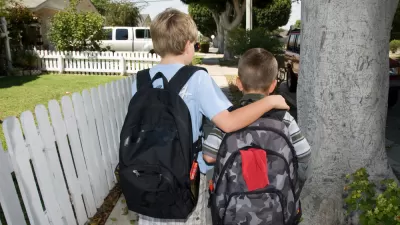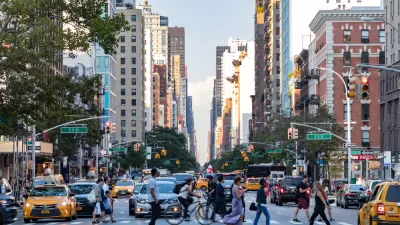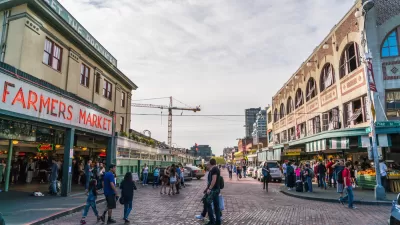Dave Munson discovered the neighborhoods throughout the United States that are both affordable by his salary and walkable.

Munson reported on his blog, Munson's City, his quest to find a walkable neighborhood within his price range, according to his above national average income.
Munson mapped the Census tracts with a median income within $10,000 of his own, and overlayed neighborhoods scoring above 70 on the WalkScore. Interestingly, Munson found some factors had strong correlations between the WalkScore and Census data, such as education, employment, mode share, historic neighborhoods, and age.
Capitol Hill in Seattle came out on top, followed by, "Cambridge and Somerville outside of Boston, and the South End in Boston; Columbia Heights, Washington, DC; The Mission District, Lower Haight, and Russian Hill, San Francisco; Midtown, Atlanta; Greenwood, Dyker Heights, Kensington, and Sheepshead Bay, Brooklyn; Graduate Hospital in Philadelphia, where we used to live; Lake View, Chicago; and Five Points, Denver."
H/T to @TransportData for the article.
FULL STORY: Where I Should Live, According to Math

Study: Maui’s Plan to Convert Vacation Rentals to Long-Term Housing Could Cause Nearly $1 Billion Economic Loss
The plan would reduce visitor accommodation by 25,% resulting in 1,900 jobs lost.

North Texas Transit Leaders Tout Benefits of TOD for Growing Region
At a summit focused on transit-oriented development, policymakers discussed how North Texas’ expanded light rail system can serve as a tool for economic growth.

Using Old Oil and Gas Wells for Green Energy Storage
Penn State researchers have found that repurposing abandoned oil and gas wells for geothermal-assisted compressed-air energy storage can boost efficiency, reduce environmental risks, and support clean energy and job transitions.

Private Donations Propel Early Restoration of Palisades Playground
Los Angeles has secured over $1.3 million in private funding to restore the Pacific Palisades playground months ahead of schedule, creating a modern, accessible space that supports community healing after recent wildfires.

From Blight to Benefit: Early Results From California’s Equitable Cleanup Program
The Equitable Community Revitalization Grant (ECRG) program is reshaping brownfield redevelopment by prioritizing projects in low-income and environmental justice communities, emphasizing equity, transparency, and community benefits.

Planting Relief: Tackling Las Vegas Heat One Tree at a Time
Nevada Plants, a Las Vegas-based nonprofit, is combating the city’s extreme urban heat by giving away trees to residents in underserved neighborhoods, promoting shade, sustainability, and community health.
Urban Design for Planners 1: Software Tools
This six-course series explores essential urban design concepts using open source software and equips planners with the tools they need to participate fully in the urban design process.
Planning for Universal Design
Learn the tools for implementing Universal Design in planning regulations.
Ascent Environmental
Borough of Carlisle
Institute for Housing and Urban Development Studies (IHS)
City of Grandview
Harvard GSD Executive Education
Toledo-Lucas County Plan Commissions
Salt Lake City
NYU Wagner Graduate School of Public Service




























